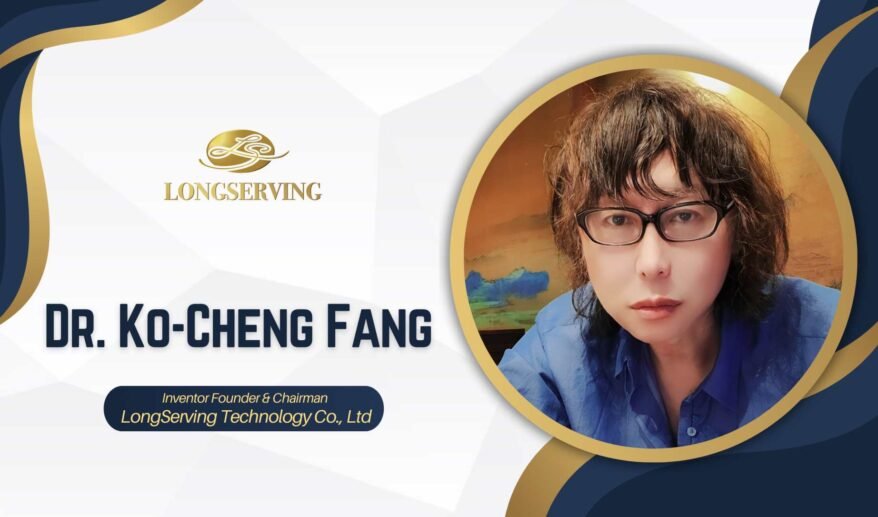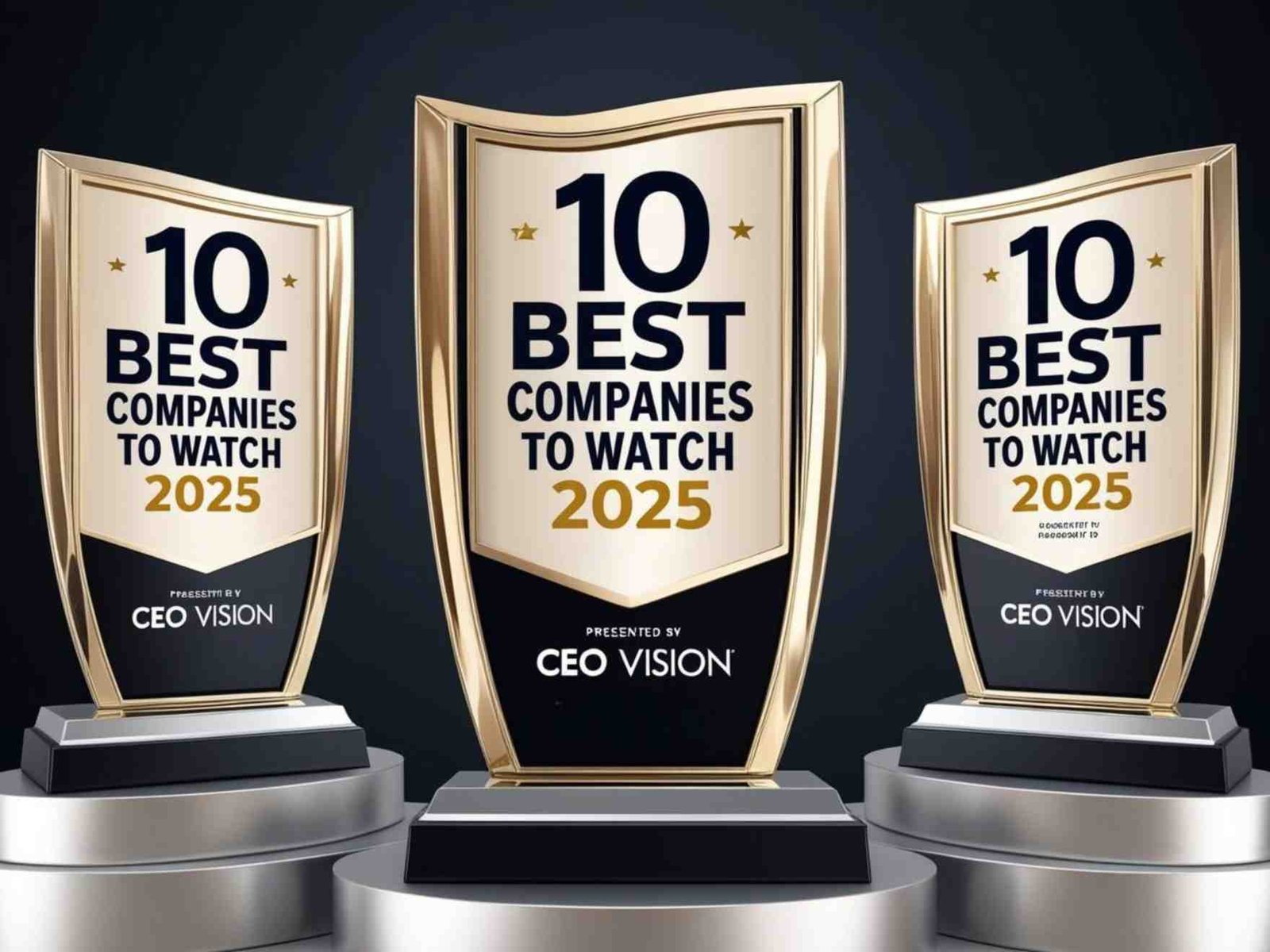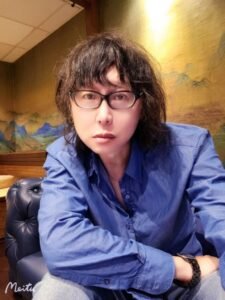- The Bioplastic Revolution Of Our Times: The ECOPHA Endeavor For A Plastic -Free World
- The Payroll Playbook That Elevates Businesses & Empowers Employees: The Human Resources Mexico Story
- Explore the Exotic Side of Egypt: Unlocking Extraordinary Experiences with Elite Diving
- The Unmatched Reliability of Radeus Labs: The Mastermind Factor for Mission-Critical Environments
- The Care That You Can Trust: The Professional and Compassionate Story Behind CaptainK

A New Era Of Innovation: LongServing's Breakthrough Revolution In Technology And Beyond
LongServing is a technology company at the forefront of innovation, driving advancements in photonic computing, robotics, and lab-grown materials. Under the leadership of founder Dr. Ko-Cheng Fang, the company is spearheading the development of cutting-edge solutions with far-reaching implications for industries such as healthcare, automotive, and electronics. With a strong focus on research and development, LongServing is poised for significant growth and expansion, with plans to list on Wall Street and establish a global presence.
The Inspiration Behind LongServing
Dr. Ko-Cheng Fang’s inspiration for starting LongServing came from his meditation practice, where he discovered memories of his past life. Through deep meditation, he discovered memories of his past life. He was from the planet Om, and was the ruler of ancient Earth. When Earth faced its fourth destruction, he led the early humans to escape in a UFO and relocated to the Moon, where they built a base inside it. Earth was a fiery ball at that time, and they later travelled to a distant planet to repopulate humanity.
As a result, his mind is filled with alien technology, and whenever he sees images, he can recall their structures and principles. This inspired him to found LongServing Technology. To bring the technologies he remembers to life, he first took on the world’s toughest scientific challenges to prove his extraterrestrial origins. He began by attempting to synthesize jadeite, a market worth over 1 trillion NTD (around 31 billion USD) annually. By succeeding, he could become the future’s wealthiest individual. As has been seen, he has been featured in various media since 2024.
In 2025, China Central Television (CCTV) invited him for an exclusive interview. However, he only accepts written interviews. The reason is simple: this year, the company plans to tackle an even greater challenge – competing with Taiwan’s TSMC, the global semiconductor giant. While humanity remains focused on electronic chips, the company aims to create 2nm photonic chips to propel human technological advancement.
A New Frontier in Automation and Robotics with LongServing
LongServing differentiates itself from other players in the automation and robotics industry through its innovative approach to photonic computing. While traditional human robots rely on binary-based electronic chips, which are limited by their physical properties, LongServing’s photonic computing chips use light to process information, allowing them to operate at speeds comparable to the human brain’s neural signals. This enables LongServing’s chips to simulate the human brain’s functions in robots, overcoming the limitations of traditional binary systems.
The human brain processes information in a complex, non-binary way, and LongServing’s technology is designed to mimic this process. For example, while a computer processes the number 81 as a binary sequence, the human brain recalls it instantly. LongServing’s multi-bit computation patent, which uses a decimal system to represent 3D images, allows computers to better mimic human brain processing. Additionally, the company’s use of photon wave frequencies and nanoscopic quantum dots enables its chips to replicate the human brain’s perception of color.
However, manufacturing these chips is a significant challenge. The human brain is a complex network of chemical-based neural waveguides, unlike traditional computer chips, which are constructed from copper wires. To address this, LongServing has developed a picoscale manufacturing chip patent that can create chips down to the size of a single atom. By combining these two patents, LongServing believes its technology can outperform the world’s leading AI and quantum chip giants, creating the most realistic robot core GPU chips.
Transforming Industries with Advanced Robotics
LongServing’s technology is poised to revolutionize industries such as electronics and automotive with its development of an AI robot possessing a human-like brain. This robot’s computational speed surpasses that of humans, enabling it to fully replace humans in various tasks. In the automotive sector, for instance, the robot could drive cars with ease, withstand extreme G-forces in fighter jets, and navigate complex environments without requiring pre-transmitted data.
The robot’s advanced recognition system, enabled by its ability to judge distances and perceive colors, facilitates low-altitude flights and effortless navigation. Its heat-resistant titanium alloy shell and closed optical circuit design make it an ideal candidate for rescue missions in nuclear disaster sites or high-temperature radiation fire scenes.
LongServing has already secured photon chip patents in 26 major industrial countries, paving the way for the widespread adoption of this technology. The company’s vision is to create a new generation of robots that can network with each other, control, and even build entire factories. This technology has the potential to transform the manufacturing landscape, making traditional craftsmanship obsolete. With LongServing’s robots, the possibilities for innovation and growth are vast and exciting.
Revolutionizing Industries with Advanced Delta Robot Technology
LongServing’s robot technology, powered by its innovative our multi-bit optical computing chip, offers numerous benefits across industries such as electronics and medical devices. In the medical field, these robots possess the high-speed computational power necessary to perform precise surgeries. Equipped with camera lenses, they can capture 3D images and function as scanning systems to examine patients’ organs. With the addition of X-ray lenses, they can conduct internal organ scans and transmit data directly to the core GPU.
The robots’ cloud connectivity enables them to synchronize complex surgeries, such as multi-organ resections or transplantations. Moreover, they can operate in hazardous environments, including radiation zones or virus-infected areas, reducing the risk of human exposure. Unlike traditional Delta robotic arms, which require human calibration for tasks such as weight, distance, and force adjustments, LongServing’s robots represent a significant leap forward. They are capable of achieving true artificial intelligence, far surpassing the capabilities of basic Delta robots, which are limited to providing human assistance.
Transforming Medical Device Manufacturing with Automation
Medical device manufacturers can expect significant benefits from implementing LongServing’s automation solutions. The company’s powerful robots come with a software interface platform that can be integrated with existing healthcare systems. This integration enables human doctors to input their medical expertise into the robot, allowing it to take over labor-intensive tasks. As a result, doctors can focus on high-value tasks such as medical research and advancements, ultimately leading to improved patient outcomes and accelerated innovation in the medical field.
Driving Innovation through Research and Development
LongServing’s research and development process is rooted in its founder’s unique approach to problem-solving. As a recipient of the Lifetime Achievement Award from the International Inventors Association, the founder draws inspiration from his home planet’s innovative solutions. When faced with challenges, he considers how his planet would address them, leading to groundbreaking ideas.
One notable example is his approach to cybersecurity. By enforcing strict laws against hacking on his home planet, he was able to develop a secure network system. This concept, which he patented and made public, laid the foundation for cloud computing and was adopted by the U.S. Department of Homeland Security.
To fund ongoing research and development, the founder developed lab-grown jadeite, providing a stable revenue source. With this success, he is now focused on implementing his vision of bringing advanced robots to Earth. However, he recognized that Earth’s chip technology was lagging behind, prompting him to design the world’s first multi-bit photonic chip and create the first picometer-scale chip using chemical processes. Despite initial skepticism, his patent was approved in 26 countries, prompting industry leaders like TSMC to take notice. LongServing’s picoscale patents give the company a significant advantage in the field, positioning it for continued innovation and growth.


“Lab-grown jadeite showcasing innovation and craftsmanship”
A Vision for Global Leadership
LongServing’s vision for future growth and development is ambitious and far-reaching. The company’s primary goal is to establish itself as the leading global technology powerhouse, surpassing industry giants like TSMC. To achieve this, LongServing plans to complete the development and mass production of a 2-nanometer photonic computing chip within the year.
In parallel, the company aims to release shares in phases, with the ultimate goal of listing on Wall Street. To facilitate this, LongServing plans to offer 10% to 30% of its equity and is seeking partnerships with experienced underwriting firms, teams, or financial institutions.
In addition to its technological advancements, LongServing is also focused on expanding its luxury goods business, particularly in the realm of lab-grown jadeite. The company plans to establish flagship stores in major luxury cities and invest in high-profile advertising campaigns, including fashion shows featuring top models.
To support these initiatives, LongServing is seeking market funding. The company has already made significant investments in its marketing strategy, including the production of 11 micro-movie advertisements featuring jadeite songs in multiple languages.
Dr. Ko-Cheng Fang possesses a unique blend of artistic creativity and scientific rationality, which he expresses through various forms, including his paintings. Some have referred to him as a modern-day Da Vinci, a testament to his innovative and Renaissance-like approach.
A Testament to Innovation: The Taiwan Excellence Award
The Taiwan Excellence Award is a significant recognition of LongServing’s innovative lab-grown jadeite, serving as a national endorsement that reinforces the company’s credibility. This achievement is expected to bolster the confidence of both investors and consumers, further solidifying LongServing’s position in the market.
However, for the company’s founder, this award is only the beginning. The true aspiration is to receive the Nobel Prize in recognition of the groundbreaking multi-bit photonic quantum chip project. This endeavor has the potential to revolutionize various fields, building upon the founder’s already impressive contributions to human cybersecurity and cloud computing.
The founder’s past achievements, including the design of the firewall architecture for the U.S. Department of Homeland Security, have had a lasting impact on global technological advancement. Twenty years later, this Nobel Prize aspiration serves as a testament to the founder’s dedication to innovation and their desire for recognition of their indelible contributions to the world of technology.
Empowering Future Leaders in Automation and Robotics
As the founder of LongServing, Dr. Ko-Cheng Fang identifies the biggest obstacle facing the next generation of automation and robotics industry leaders as the limited computational power of current chips. He believes that future robots cannot rely on traditional chips, which are insufficient to replace human brain power.
To address this challenge, Dr. Fang emphasizes the importance of enhancing computational power through both software and hardware advancements. LongServing’s innovative multi-bit algorithm boosts computational efficiency on the software side, while its picometer-scale chip manufacturing patent provides a feasible solution for replacing expensive extreme ultraviolet (EUV) lithography machines.
Dr. Fang envisions a future where multi-bit photonic computing surpasses binary electronic computing, offering a superior alternative to current quantum bits. LongServing’s photonic computing approach resolves the limitations of quantum computers, including bulkiness, signal capture challenges, and complex error correction algorithms. By guiding the development of future leaders within the organization, Dr. Fang aims to empower them to drive innovation and overcome the challenges facing the automation and robotics industry.
Company Name: LongServing Technology Co., Ltd
Inventor Founder & Chairman: Dr. Ko-Cheng Fang
Website: https://www.longserving.com.tw/
Email: service@longserving.com.tw
You May Also Like

Company Name: LongServing Technology Co., Ltd
Inventor Founder & Chairman: Dr. Ko-Cheng Fang
Website: https://www.longserving.com.tw/
Email: service@longserving.com.tw

